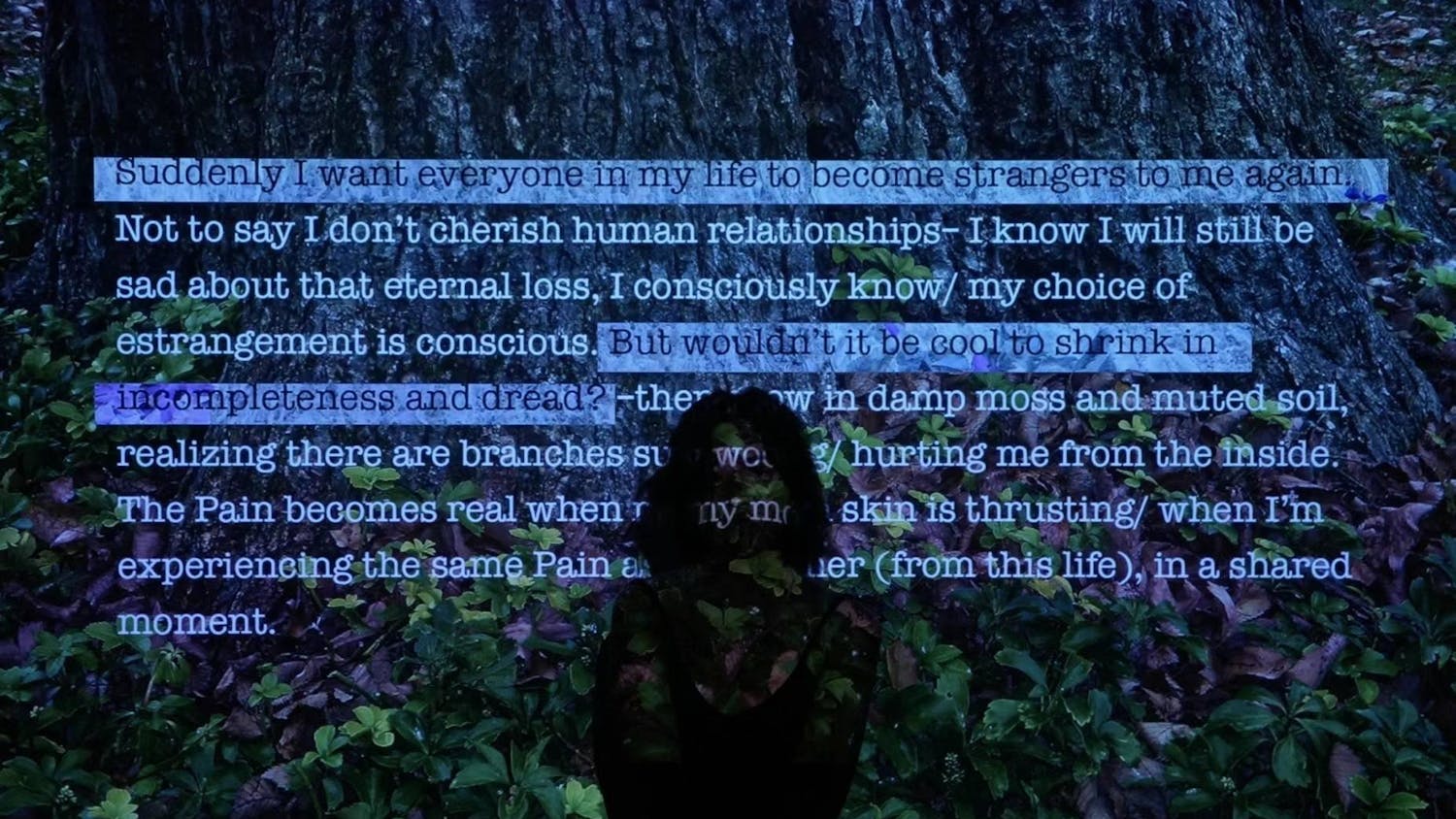Atypically formal for a collegiate event, ushers dressed in black tie greeted concertgoers and a grand piano graced the stage of Salomon 101 Tuesday night. Gathering to hear Cheol Woong Kim, a concert pianist and professor of music at Paekche Institute of the Arts in South Korea, speak and perform, audience members trickled in starting at 7 p.m., and within half an hour, the floor and balcony were packed.
At half past seven Kim — a North Korean native who fled and now lives in South Korea — began his concert not with spoken word, but with song.
Bowing humbly after performing Chopin’s “Nocturne No. 2,” he explained in Korean his somber choice of song. Translating his remarks, Peter Kim GS and Betty Kim ’15.5 explained that the song is featured in the movie “The Pianist” set in Nazi Germany. The film’s main character only keeps his life because a Nazi soldier appreciated his music, capturing the power of music even in chaos.
“I will be talking about my life and will play some pieces in between,” Kim said. “I hope that by learning about my life between these pieces that you will learn more about the life in North Korea.”
Living a “privileged life” as the son of a politician and a university professor, Kim started to play piano at age six. There were only three available pianos in the entire city, and Kim attended a kindergarten that was home to one of them, he wrote in an email to The Herald. Kim Jeong Il, the North Korean ruler at the time, respected musicians, so Kim’s parents had him learn with hopes that the skill would help his career, he added.
At eight years old, Kim was one of nine chosen from 5,000 applicants to be accepted into the Pyongyang Music and Dance Institute. “Of those nine people, my first love was one of them,” he said at his performance. “I don’t think you can not talk about love when you talk about life, right?”
He then studied at the Moscow State Conservatory. “Before I studied abroad, I did not begin to question the kind of limit I had as a pianist. … I thought that to express music was to express the ideology of the government,” he said.
It was this restriction on his freedom of expression that eventually gave Kim the impetus to flee. He had planned to propose — to the girl who was one of the nine — by playing her a song, but the song he wanted to perform was not permitted in North Korea. Practicing secretly in his room one day, he was overheard and reported to the authorities. After being detained by the National Security Agency, he was interrogated about what made him play the song. He was instructed to write a report, and he escaped during this interim.
He did not talk to his parents. He did not talk to his love. “I could not tell her even if I had had the opportunity. And if I were to have told her, she probably would have reported me to the authorities,” he said.
Escaping first to China and later to South Korea, where he is now a professor, he said, “I did not escape for ideological reasons. I wanted freedom for my fingers to move on the piano.”
He said the type of music he played from the beginning of his piano instruction was half classical and half propaganda. “But people in North Korea still wanted to express themselves,” he added. “No matter how totalitarian the government is, music will always prevail. It is basically the essence of life. And this is why I want to use music as a medium to change their lives.”
“I just said ‘them,’ but the truth is, I used to be one of them,” he added.
Kim closed his concert and conversation with a traditional piece that he transposed to better articulate what he felt demonstrated the harmonious blend of the cultures of North and South Korea.
Even today, citizens of North Korea cannot speak freely, he said to the audience. “To a nation that was united over 60 years ago and that could be united 60 years from now, I hope that I can converse with them.”
A standing ovation ensued as the lingering notes of his music and tone of his words echoed in the auditorium.
ADVERTISEMENT




